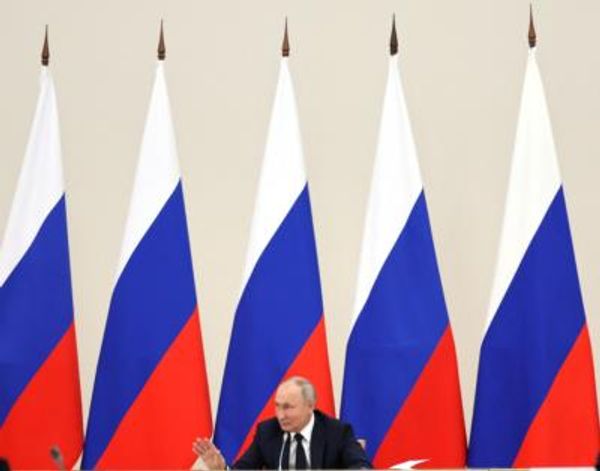
Your correspondent was at ABC Southbank in Melbourne the afternoon the board met there to edge out managing director Jonathan Shier. It was the early 2000s, and Shier, an Australian who’d been a jobbing UK TV exec, had been appointed by the board led by Donald McDonald, a friend of John Howard’s in the world of culture.
Many alleged Shier was hired to de-leftify the ABC. Most observers understood that to be his role, except perhaps Shier, who took on a grand reorganisation of program-making and commissioning, whose signal achievement was that both of those activities ceased almost immediately and the ABC ended up playing Fawlty Towers reruns on Friday night.
As this wound on, it became clear many believed Shier could not administer an organisation of the ABC’s size. Stalwarts in the Howard government insisted, Shanghai ’67 style, that he should be supported. As chaos multiplied, McDonald eventually decided this could not continue and convened the board. That afternoon, half of ABC News Melbourne was outside Southbank filming their colleagues coming in and out.
It was a great afternoon. At the time, I was there making a low-budget game show called Is It A Spatula? I walked through the building’s Logan’s Run-style open corridors that hung off the atrium, and McDonald came out of the meeting and walked past. I have never seen anyone outside of a just-occurred car crash look more like they were staggering out of a just-occurred car crash. I think his grey, haunted face had less to do with Shier’s sacking, a bit of global TV dandruff, than the horror at what he had got the ABC into by agreeing to Shier’s hiring in the first place.
No-one is suggesting outgoing managing director David Anderson was anything like Shier as a supremo. I just wanted to tell that anecdote. But Anderson’s departure does offer an opportunity to reorder priorities. Might get better. Might get worse. My particular attention is to whether Radio National, a sinking vessel that should be a flagship, will get new life. Chairman Kim Williams has affirmed his belief in RN, which is a relief, because previous administrations have wanted it to drink bleach and die.
The strong belief within radio was that the ABC was preparing to take RN online — and given its low numbers, you would have to mount a strong defence to avoid this. Quite unlike BBC Radio 4, which Williams namechecked, RN simply does not have a place at the centre of the national culture.
There are reasonable excuses for that. The BBC has the license fee, a massive budget revenue item, which allows it to do stuff the ABC couldn’t contemplate. Decades ago, it split “The Third Program” (i.e. station) into BBC Radio 3 and Radio 4, the former playing a lot of classical and art music and very intellectual discussion programs.
No-one expects Radio 3 to rate well. Radio 4 was thus free to have comedy, drama serials and plenty of light entertainment, as well as news and commentary. The flagship is the three-hour Today show, a massive beast that both sets the agenda and grills politicians and leaders in a way that RN Breakfast simply does not.
With Today setting the pace, Radio Four then rolls out an early morning ideas program — “This is Melvyn Bragg with In Our Time. This week, we’re discussing the janissaries of the Seleucid Empire, the last ancients or first moderns? Next week: stuff. Why is there so much of it? Where can we put it?” — the Woman’s Hour (reinvented about eight times over seven decades), mid-day commentary, a radio play either gripping or ghastly, specific topic programs on economics, nature, books, etc, the PM program (rather more focussed than ours, spending 15 of its 55 minutes on a lead topic), the news and a satirical or panel comedy show.
Then there’s The Archers — a 75-year-old, 15-minute rural soap that you can drop listening to for two years and effortlessly pick up the plot on your return — as well as “Oh farmer Jim sold the spatula” arts, comedy, a global news show called The World Tonight, and, best of all, The Shipping Forecast, a detailed weather report for marine areas around the UK that doubles as a sort of randomiser/life advice program (“Cromerty, clear later, North Uitserre, an early storm losing its identity in the afternoon.” As do we all…).
The point is that this is “whole of station” programming. It is designed so you can just listen to the station burble on, shifting its approach as things get too shameish, taking you places. The second is that such programming has many entry points. People coming for the comedy will stay for the news; those tuning in to Today will carry on through; those who tune in to the plays will get the treatment they require.
RN could do some basic things to apply this dual model, even if it doesn’s have anything like the Beeb’s cash. The first would be to put a goddamn clickable schedule right at the top of the website so one can directly click through to The Philosopher’s Zone: What Is A Spatula? or whatever.
The second is to then commission the different types of topic-based shows that crowd the schedule. Radio 4 has a show called The Reunion, which is a bit like ABC TV’s I Was Actually There, but whose mix of topics is much broader and inadvertently hilarious in the listing (“The 1989 FA championship/The 1986 IRA Brighton bombing/A Flock of Seagulls…”, etc). Once again, entry points. Not always serious or portentous.
The third thing is to mix them with more comedy, drama and entertainment. RN, at the moment, is through the day, simply one long series of these topic-based discussion programs, of little interest to those who don’t want to think about religion, politics, society, etc. The tone is too much the same, implicitly sociological, a progressive class observation of life as it occurs. There are exceptions, and it’s notable these are headed by people with experience in multiple types and “brow” levels of media.
The relative absence of comedy and entertainment is often based on the excuse that it’s too expensive. That is nonsense, especially for radio. The thing to do is to hire performer-writers. Both the MEAA and Writer’s Guild agreements have provisions for an all-in buy of such talent; you don’t have to pay people twice. A six-part, 15-minute episode comedy series about two people trapped in a lift would involve two comedians who can improvise and write, a producer and a sound effects tape. You can record the whole thing in two days of studio time. My guess is many A-list comedians would work for scale (i.e. the basic rate) just to have a chance to do something like that — something with a bit of shelf life.
Panel shows? Slim ’em down from the BBC model of a chair and four panellists to three participants, make them 20 minutes, get a studio audience in and record four in a day. These could all be branded and budded off as podcasts, but the point is to try and get back the sense of radio flow, that the station is showing you, as the gun comedy writer Rob Caldwell once put it, “stuff you will like but didn’t necessarily know you wanted”. That’s the essence of broadcasting.
But above all, in doing these and other things, RN and the ABC have got to lose the attitude: this pervasive sense that floats through the whole organisation like gas, that you have to improve people — or, conversely, that when you’re not doing that, you’re doing absolutely low-rent deliberately trashy formless chaos.
Let’s leave aside examples of the latter and take the former, notably the case of I Was Actually There (a strange, redundant title, like “I really love you”; we all know what that means). The show has some constraints, in terms of footage it can access and afford, but the selection of the material combined ra-ra progressive events such as the Woomera break-out and Nicky Winmar’s stand against racism, plus disasters. These are presented from the progressive point of view, which simply “others” those constructed by it.
Could we not have had, as well, a momentous AFL Grand Final — the players, the coaches, the spectators — simply there because it was an exceptional and staggering afternoon of football, and the preparations leading up to it? Or the creation of the Melbourne Comedy Festival, which would allow for jokes, anecdotes, etc. Something about events that were significant to a mass of people simply as part of the texture of life, without an issue attached?
The very centre of this attitude problem is RN Breakfast, which appears to have shed more than half of its listeners since the departure of Fran Kelly. As a listener/switcher-offer, I can say why: under whoever was responsible for the composition of the show under Kelly, and now under Patricia Karvelas, it has gone from what feels like a well-rounded show, in its textures and interests, to a scratchy insistent version of student radio 1979 (the vocal stylings of Warwick Hadfield aside, always).
AM is the same. Both show a lack of interest in standard and mainstream social and political issues, in favour of a relentless advancement of the politics of minority and marginal interests and groups. Such groups do deserve time and attention beyond their number. But in these and other shows, there’s a crowding out of mainstream coverage. To complicate matters, there are also a couple of right-wing news cells who do packages for AM that are just IPA talking points.
With work, and not much more money, Radio National could have vastly more reach and a sense of public connection and ownership. Its recession to asterisk status is entirely perverse. A pre-existing radio station should be a seedbed for podcasts as ancillary products, for low-cost conceptual piloting of potential TV and much more. What Is a Spatula? wouldn’t work, but a new concept game show, It Sounds Like a Kettle Being Hit With a Knife. Is It, In Fact, a Kettle Being Hit With a Knife?, might have a run.
Without change, Radio National will drift the corridors, ghostly and haunting, before being exorcised altogether.
Do you still listen to Radio National? Why, or why not? Let us know your thoughts by writing to letters@crikey.com.au. Please include your full name to be considered for publication. We reserve the right to edit for length and clarity.







